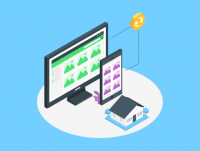
Institutional memory is the sum of the information, documents and experiences that an institution has gained from its establishment to the present day. Companies constantly share information and documents with official institutions, employees and customers, and some of these documents are kept in a compulsory manner and some are kept in the company archive. These components that make up the corporate memory also form the source of how the company will respond to the situations it faces in the future.
Let's Get to Know the Institutional Memory in Brief
As we mentioned at the beginning of the article; Institutions constantly share information and documents over time. The records of this information and documents have the feature of presenting historical evidence as well as a source that can be used for all kinds of situations encountered in time.
Especially considering today's business and association life, it is essential that decision-making mechanisms are operated quickly. Institutional memory also carries the mission of being an important resource in situations where rapid decision-making is required.
In the recent past, the records forming the institutional memory were included in the institutional archives in the form of files and were researched and revealed here when needed. Fortunately, thanks to the rapid development of technology and the digitization of document storage conditions, it has become much easier to store and access information and documents when necessary.
Data Gains Skill
I am sure that you gradually grasp the importance of keeping the documents collected over time in a certain order for companies that attach importance to corporate memory. It is possible to talk about two basic processes and types of content management tools that ensure the proper storage of information and documents.
EBYS (Electronic Document Management System), which provides the management of internal and inter-institutional correspondence, and DYS (Document Management System), in which official letters are recorded, form the basis of information and document management.
Apart from EBYS and DYS, it is also possible to mention the tools offered by the private sector. These tools are specially designed according to the characteristics of the institution and are equipped with modules that can fully meet the needs of the institution.
Using software with integrated features is necessary for creating, storing and accessing corporate memory when necessary. Commercial institutions or foundations and associations that try to create a corporate memory without having any of the aforementioned tools are doomed to stay one step behind in a tough competitive environment.
For More Efficient Foundation and Association Management…
Foundations and associations that make the right decisions at the stage of digitizing their corporate memory have the chance to operate the decision-making mechanism quickly in the face of encountered situations as well as in the management of legal processes. Especially since they are in constant exchange with many other institutions and people from outside the institution, they have to take decisions much faster to achieve their goals.
Integrated solutions not only contribute to the management of corporate memory, but also to the process management of all types of institutions. If we start from foundations and associations; Member management, dues and donations management, event management and many similar processes must be managed correctly. Cloud technologies, one of the most important of today's technologies, have introduced many innovations that allow simultaneous recording and viewing of information and documents. Starting from this point alone, the importance of digitalization and applying digital solutions in corporate memory management becomes evident once again.
It is very important for foundations and associations to create a long-term institutional memory. Technology has to be used in order to take the decisions that need to be made quickly to achieve the goals set and to achieve those goals, and to make past experiences accessible in the future. Aidango is a holistic solution where foundations and associations can safely store information and documents that make up their corporate memories, while embodying administrative conveniences.























